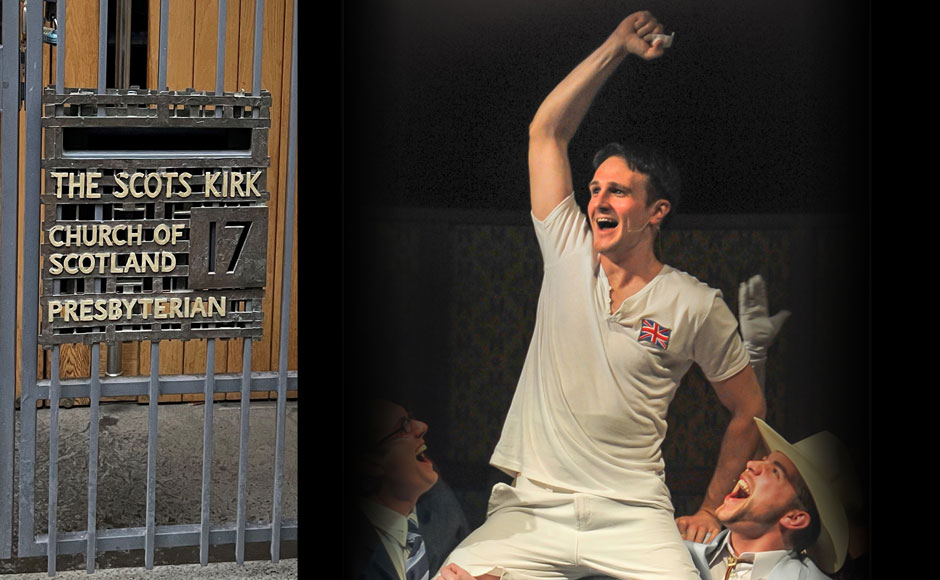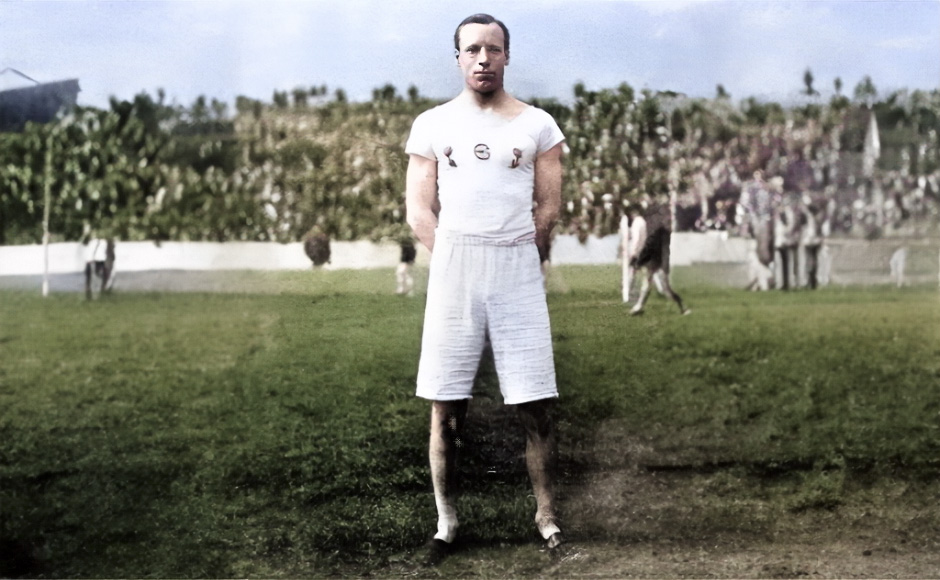Chariots of Fire story brought to life in Paris
The inspiring story of a Scottish athlete who refused to run on Sundays is being brought to life at the Scots Kirk in Paris.
Eric Liddell won a gold medal in the 400m at the 1924 Olympic Games in the French capital – the triumph depicted in the Oscar-winning film Chariots of Fire.
He refused to run in the heats of his favourite race, the 100m, because they were held on a Sunday – a day he believed is set aside by God as special and not for work – and chose to preach in the Scots Kirk instead.
To mark the centenary of his gold medal victory, the congregation is hosting two performances of Eric Liddell – the Chariot of Fire on 23 March.

Produced by the Searchlight Theatre Company, the synopsis of the four person play states: "Set in Paris, during the Olympic Games of 1924, we see the struggles Eric Liddell faces around him in staying true to his principles.
"When given the chance to become the fastest man in the world, will his convictions buckle? Should he stay true to his beliefs? And can he bring home a medal for King and country?"
One reviewer described the play as an "exploration of determination, ambition and faith".
The Flying Scotsman
Eric Liddell was born in 1902 in Tientsin (now Tianjin) in northern China.
His Scottish parents were Christian missionaries with the London Mission Society and he and his elder brother, Rob, went to a boarding school in London.
He saw his parents and sister when they returned to the family home in Edinburgh and in 1920 he enrolled in the University of Edinburgh to study pure science.
Known as the "Flying Scotsman", the athlete broke the world record three times before winning the 400m final, which was held on a week day.
Valerie Prieur, session clerk at the Scots Kirk, said: "The play is being performed as part of our Eric Liddell commemorations and we are very privileged to have Searchlight bring it here.
"It covers Mr Liddell's Olympic Games period, his decision not to run in heats for his favourite race the 100m because they were held on a Sunday, his preaching at the Scots Kirk on the 6th and 13th of July 1924 and his subsequent gold in the 400m."
The play was created and first performed in 2012 to coincide with the Olympic Games in London and in later years was toured in the USA, Australia, Canada and New Zealand.

Actor Michael Taylor is playing the role of Eric Liddell and said he is looking forward to the performances.
"The play has been on ice for some years but when we realised that the Olympics were going back to Paris, 100 years after they were last held there, we thought the chance to bring this story to life again, in a place that played a pivotal but often overlooked role in this story, is really special.
"The Scots Kirk is such a significant part of it because that is where he went on a Sunday morning, not knowing whether or not if he was going to be going home from the Olympics with nothing to show for it other than making a stand for God."
The performances are being held at 11am and 2.30pm and attendees are encouraged to make donations at the door of 20 euros for adults and 10 euros for under 16s.
Numbers are limited and people are asked to email scotskirkparis@orange.fr indicating whether they intend to attend the morning or afternoon performance.
Mr Liddell graduated from the University of Edinburgh after the 1924 Paris Olympics, went on to study Theology for a year after which he returned to Tientsin to work as a missionary with the London Missionary Society.
He taught science at the Anglo-Chinese college and later decided to become an evangelist in rural China, travelling by foot and bicycle.
Brain tumour
Following the Japanese invasion of China and the outbreak of the Second World War, Mr Liddell's pregnant wife and their two children left for the safety of Canada, her birth country, but he decided to stay.
He was later classified as an enemy national and sent to the prison camp at Weishien in 1943.
Mr Liddell took on a leadership role to meet prisoners' physical and spiritual needs – preaching sermons and teaching hymns.
Tragically, he developed an inoperable brain tumour and died in the camp in February 1945.
A one man play covering Mr Liddell's life after the Olympic Games is being staged at the Scots Kirk on 6 July.
The Eric Liddell 100 is a programme of educational, sporting and cultural events celebrating Liddell's legacy and aiming to bring his achievements to life for new generations.
The Paris 2024 Games will be the biggest sporting event organised in France and will take place from 26 July to 11 August.